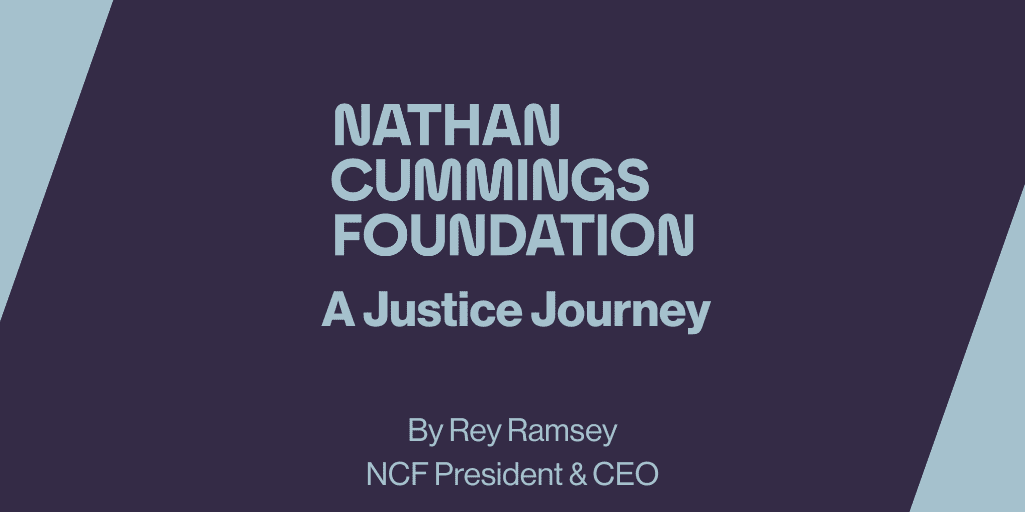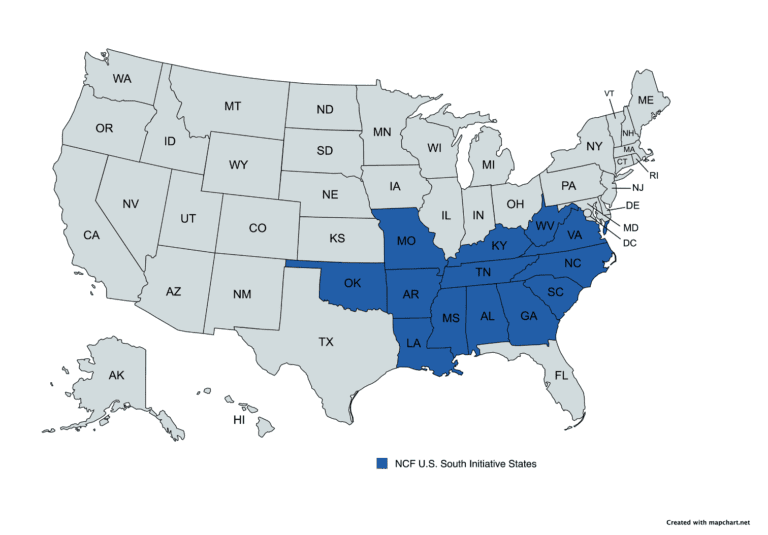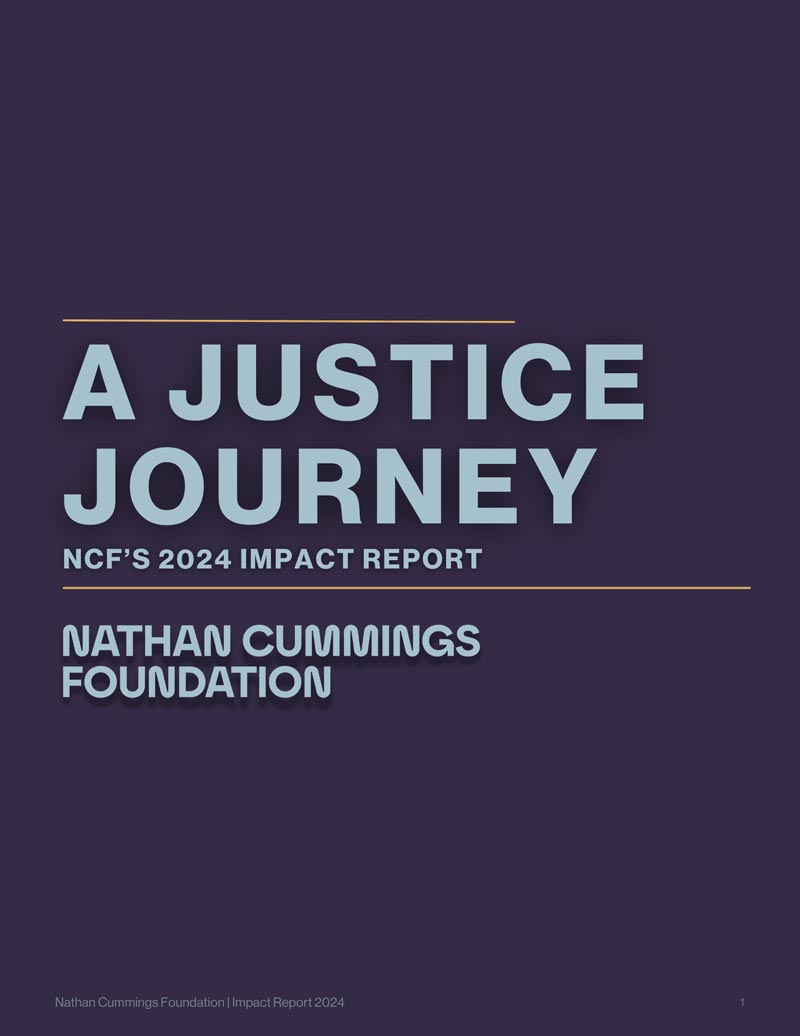The Nathan Cummings Foundation’s Director of Corporate and Political Accountability, Laura Campos, recently sat down with leaders from three of our partners – Joe Maxwell, Executive Director of the Organization for Competitive Markets (OCM), Sarah Miller, Deputy Director of the Open Markets Institute (OMI) and Stacy Mitchell, Co-Director of the Institute for Local Self-Reliance (ILSR) – all of whom are on the frontlines of the fight to decrease concentrated corporate power. Each shared their take on how addressing unfettered corporate power can help us create a more just and inclusive economy.
Below is part two of NCF’s two-part series, “Corporations Shouldn’t Have a Monopoly on Power.” You can read the first installment here.
Laura: Why is it so crucial that anti-monopoly work incorporate a racial justice analysis? How does concentrated corporate power exacerbate racial injustice?
Stacy: When industries consolidate, businesses owned by people of color are shut out of markets. Local ownership is a significant way to build wealth and create enterprises that are embedded in and accountable to their communities. As concentrated power has grown, opportunities for entrepreneurs of color to succeed and grow has been constrained and often just shut down completely.
For a forthcoming report, ILSR mapped the distribution of community banks by county between 2006 and 2018 and the level of consolidation is dramatic. Nationally, more than 40 percent of all local banks disappeared in this 12-year period. We also looked at this shift through a lens of race and, particularly in black communities, there has been a disproportionate loss of local banks. This has led to a decline in lending. The whole engine of how you build a local economy that works for people is just missing if you don’t have the financial piece.
Monopoly power also has significant implications for our ability to create an inclusive clean economy. New energy technologies like distributed solar are so much more economical than coal plants and nuclear and even natural gas in most states. So, the old centralized monopoly utility model doesn’t make sense anymore, but the old monopolies are trying very hard to hold on to their position. They want to keep operating their fossil fuel plants, but there are legislative campaigns underway in many states to support distributed ownership. If you bring a racial and economic justice analysis into how you design these policies, it changes how you structure the rules — for example, what the financing mechanisms should be — so that everybody can participate in being a producer and an owner of power.
We’re beginning to see coalitions that bring together workers, small businesses, farmers, and communities of color because there’s a growing realization that racism, concentrated economic power, and the fraying of democracy are connected, and that we can only fix these interlinked problems through structural change. This is a potentially transformational shift in our politics. We’re starting to see the kind of coalition that could drive significant change.
Sarah: Open Markets’ intent is to create an economy that is more inclusive, where people are more financially secure and there are broader opportunities for people to succeed and start their own businesses. But we’re trying to push all these things up a really steep incline because we’ve allowed our markets to be structured so that wealth and power are going straight up instead of flowing towards the bottom of the income ladder and disproportionally harms communities that have been historically excluded from power.
Laura: How can antitrust and anti-monopoly level the playing field to address inequality?
Sarah: Antitrust and anti-monopoly give us the tools to change the incline. If we start to think about market structure along these broader lines, and not just through the consumer welfare standard and other corrupt economic models, we will be able to accelerate progress on these other areas. Both because it will be easier to achieve politically and because our markets will be structured so that those outcomes are more easily achieved. Right now, it is difficult to achieve goals like a more equitable, inclusive economy, because you have a narrow group of corporate elites who are able to dump money right through our political system and corrupt priorities from the inside, causing progress on racial and economic justice to be even more distant.
We are in the middle of a national conversation about power. Who has power and who should have power? The job of Open Markets and others is to put concentrated corporate power at the center of this conversation because it’s a big reason why communities have been disempowered and families are struggling. We’re seeing a narrative play out that is harnessing racism quite explicitly to fuel a political movement and creating a politics of grievance around black and brown people and immigrants. But really, the reason why so many communities are struggling to get ahead is not because of those factors, but because we have this deeply broken economic structure characterized by concentrated corporate power in which a small set of monopolists continues to expand power for themselves and shut it off for others.
Joe: One of the encouraging things about the current moment and the push around anti-monopoly is that we’re looking at structural problems in the economy. For a long time, we inhabited this ideology that assumed that the economy was happening in the same way the weather happens, and it was natural forces that were driving concentration and many of the problems we’re seeing.
Now we’re seeing the economy much more as a result of deliberate policy decisions about how we structure the economy. We’ve structured the economy in a way that consolidates of power. And it’s essential to recognize that the extraction of wealth and destabilization of communities, particularly African American communities and other communities of color, is a feature of how our economy is set up to work and not a bug. And so, work around anti-monopoly and racialized capitalism has come together and resulted in a broader realization that changing the rules that govern the economy is key to solving some of these problems and their disproportionate impact on communities of color. And I think that is a healthy turn in the political conversation.




